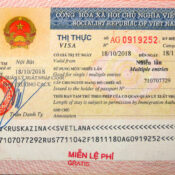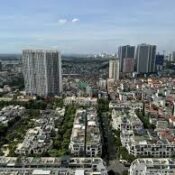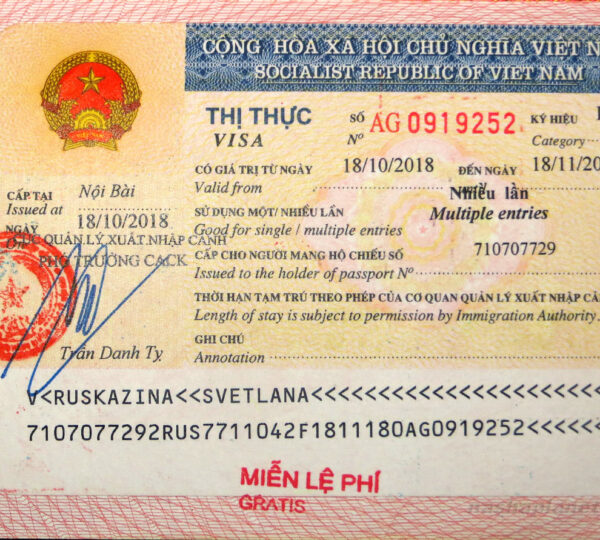
Vietnam Real Estate: A Guide to Renting or Buying Property as a Foreigner
Vietnam has become an attractive destination for expatriates, retirees, and investors due to its affordable real estate market, fast-growing economy, and welcoming culture. Whether you are looking to rent or buy property, understanding Vietnam’s legal framework, restrictions, and costs is essential. This guide provides an overview of the process, requirements, and key considerations for foreigners interested in real estate in Vietnam.
Renting Property in Vietnam
Finding a Rental Property
Foreigners can rent apartments, houses, serviced residences, or villas in Vietnam. Some of the best ways to find a rental property include:
- Online Listings – Websites like Batdongsan, Propzy, and Muaban.net offer numerous property listings.
- Real Estate Agents – Working with a local real estate agent can help with lease negotiations and legal matters.
- Expat Forums & Social Media – Many expat Facebook groups and online communities list rental opportunities.
- On-Site Visits – Walking around neighborhoods and contacting local landlords directly.
Rental Agreements & Requirements
Most lease agreements in Vietnam are for a period of 6 to 12 months, with options for renewal. Standard lease terms include:
- Security deposit: Typically 1 to 3 months’ rent.
- Advance rent payment: 1 to 3 months upfront.
- Utilities: Usually paid separately by the tenant (electricity, water, internet).
- Rental contract: Should be in both Vietnamese and English and notarized for legal protection.
Average Rental Prices
Rental costs vary significantly by location and type of property:
- Ho Chi Minh City: $400 – $2,000 per month (apartments & condos).
- Hanoi: $350 – $1,800 per month.
- Da Nang: $300 – $1,500 per month (beachfront properties tend to be higher).
- Nha Trang: $250 – $1,200 per month.
Buying Property in Vietnam as a Foreigner
Can Foreigners Own Property in Vietnam?
Yes, but with certain restrictions. Under Vietnam’s 2015 Housing Law, foreigners can buy property under the following conditions:
- Foreigners can only purchase apartments and condominiums.
- Foreigners can own landed property (houses and villas) only if they lease the land from the government.
- Foreigners cannot own more than 30% of the units in a single apartment building.
- Property ownership is limited to a 50-year leasehold, but it can be renewed.
Steps to Buying Property in Vietnam
1. Choose a Property
Decide between an apartment, condominium, or villa based on investment goals or personal use.
2. Work with a Licensed Real Estate Agent
It is highly recommended to work with an agent who understands foreign ownership laws and can assist in property searches and negotiations.
3. Conduct Due Diligence
- Verify land use rights and ensure the property is legally available for foreign ownership.
- Confirm the developer has approval to sell units to foreigners.
4. Sign a Sale & Purchase Agreement
- Typically requires a deposit of 10% – 30% of the property price.
- Ensure the contract is notarized and translated into English.
5. Payment & Ownership Registration
- Payments are often made in stages, as per Vietnamese property regulations.
- The Land Registration Office will record the ownership under your name.
Costs of Buying Property in Vietnam
Foreign buyers should budget for additional costs beyond the property price, including:
- Value Added Tax (VAT): 10% of the property price.
- Registration Fee: 0.5% of the property value.
- Notary & Legal Fees: 1% – 2% of the purchase price.
- Maintenance Fee: Typically 2% of the purchase price.
Mortgage Availability for Foreigners
Vietnamese banks do not typically offer mortgages to foreign buyers. Most foreign buyers pay in cash or finance the purchase through international banks.
Key Considerations for Foreign Buyers
Legal Restrictions
- Foreigners cannot own land outright in Vietnam.
- Foreign ownership is capped at 30% of a single apartment building.
- Property ownership is granted on a 50-year leasehold basis, renewable upon approval.
Vietnam Real Estate: Best Cities for Real Estate Investment
- Ho Chi Minh City – Economic hub, strong rental demand.
- Hanoi – Political and cultural center, steady property appreciation.
- Da Nang – Coastal city, increasing demand for beachfront properties.
- Nha Trang – Tourism hotspot with affordable investment opportunities.
- Phu Quoc – Growing luxury real estate market.
Vietnam Real Estate: Frequently Asked Questions (FAQ)
1. Can foreigners own land in Vietnam?
No, but foreigners can lease land for 50 years with renewal options or buy apartments and condominiums.
2. Can foreigners rent out property in Vietnam?
Yes, foreigners can rent out their property, but rental income is subject to taxes (10% VAT and personal income tax).
3. What is the minimum investment for property in Vietnam?
There is no official minimum, but property purchases usually start at $50,000 – $100,000 USD for a small apartment in major cities.
4. Can buying property in Vietnam lead to residency?
No, property ownership does not grant automatic residency or a visa. Foreigners must apply separately for long-term visas or business visas.
5. What are the risks of buying property in Vietnam?
- Legal restrictions on foreign ownership.
- Land disputes if purchasing properties with unclear titles.
- Fluctuations in the real estate market.
Conclusion
Vietnam offers great real estate investment opportunities for foreigners, especially in major cities like Ho Chi Minh City, Hanoi, and Da Nang. However, foreign buyers must be aware of legal restrictions, leasehold terms, and financial limitations before purchasing. Hiring a real estate agent and lawyer is highly recommended to navigate Vietnam’s property market effectively.
Our Directory
Use our database to find visa facilitators, real estate agents, and recommended professionals. You will also have the ability to book a time to meet with our expats on the ground. These are individuals just like you who have gone through the immigration process and have been living in your desired country or city.
Recent Posts
All Categories
- Argentina
- Australia
- Austria
- Bahamas
- Bali
- Belize
- Brazil
- Chile
- Colombia
- Costa Rica
- Czech Republic
- Denmark
- Dominican Republic
- Ecuador
- El Salvador
- Fiji
- France
- Germany
- Greece
- Hungary
- India
- Ireland
- Jamaica
- Japan
- Malaysia
- Mexico
- Netherlands
- New Zealand
- Norway
- Panama
- Peru
- Philippines
- Portugal
- Singapore
- South Korea
- Spain
- Sweden
- Switzerland
- Thailand
- UAE
- Uncategorized
- United Kingdom
- Uruguay
- Vietnam




